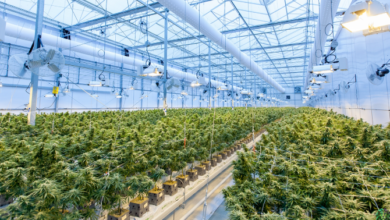Is CBD a Muscle Relaxer? Exploring the Relaxing Effects of CBD

The potential of CBD as a muscle relaxant has garnered considerable interest in both clinical and anecdotal contexts, prompting an exploration of its mechanisms and effects. Unlike conventional muscle relaxers, which often target the central nervous system, CBD engages with the body's endocannabinoid system to modulate inflammation and neurotransmitter activity. This raises pertinent questions about its efficacy compared to traditional treatments and the appropriate methods for use. As research unfolds, understanding the nuances of CBD's relaxing properties could illuminate new pathways for relief. What remains to be seen is how these findings might reshape our approach to muscle tension and discomfort.
Understanding CBD and Its Mechanism
Cannabidiol (CBD), a non-psychoactive compound derived from the cannabis plant, interacts with the body's endocannabinoid system to modulate various physiological processes, including pain perception and muscle tension.
By binding to cannabinoid receptors, CBD influences neurotransmitter release and promotes homeostasis, potentially offering a natural alternative to conventional muscle relaxants.
Understanding this mechanism is essential for those seeking freedom from discomfort and enhanced well-being.
Evidence for Muscle Relaxation
Emerging research indicates that CBD may possess muscle relaxant properties, potentially providing relief from tension and spasms without the side effects commonly associated with traditional pharmacological treatments.
Clinical studies suggest its efficacy, while anecdotal evidence from users highlights its ability to alleviate discomfort.
These findings underscore CBD's potential as a natural alternative for those seeking freedom from muscle-related issues.
Comparing CBD to Traditional Muscle Relaxers
In the quest for effective muscle relaxation, a comparison between CBD and traditional muscle relaxers reveals significant differences in their mechanisms, efficacy, and side effect profiles.
While traditional relaxers often target the central nervous system, CBD effects may work by modulating inflammation and reducing muscle spasms.
Additionally, CBD presents a potentially lower risk of dependency and side effects, appealing to those seeking natural alternatives.
How to Use CBD for Relaxation
Several methods exist for effectively using CBD to promote relaxation, including oils, edibles, and topical applications, each offering distinct benefits and onset times.
To achieve optimal results, it's crucial to determine the appropriate CBD dosage tailored to individual needs.
Experimenting with various CBD methods can help identify the most effective approach, empowering users to enjoy the relaxing benefits of CBD confidently and freely.
Conclusion
In conclusion, CBD emerges as a promising alternative to traditional muscle relaxers, akin to a gentle breeze easing the tension of a storm.
Its interaction with the endocannabinoid system offers potential benefits in reducing muscle discomfort and spasms without the side effects commonly associated with conventional medications.
As research continues to unfold, CBD's role in promoting muscle relaxation may pave the way for new therapeutic approaches, enhancing the quality of life for individuals seeking natural relief.




